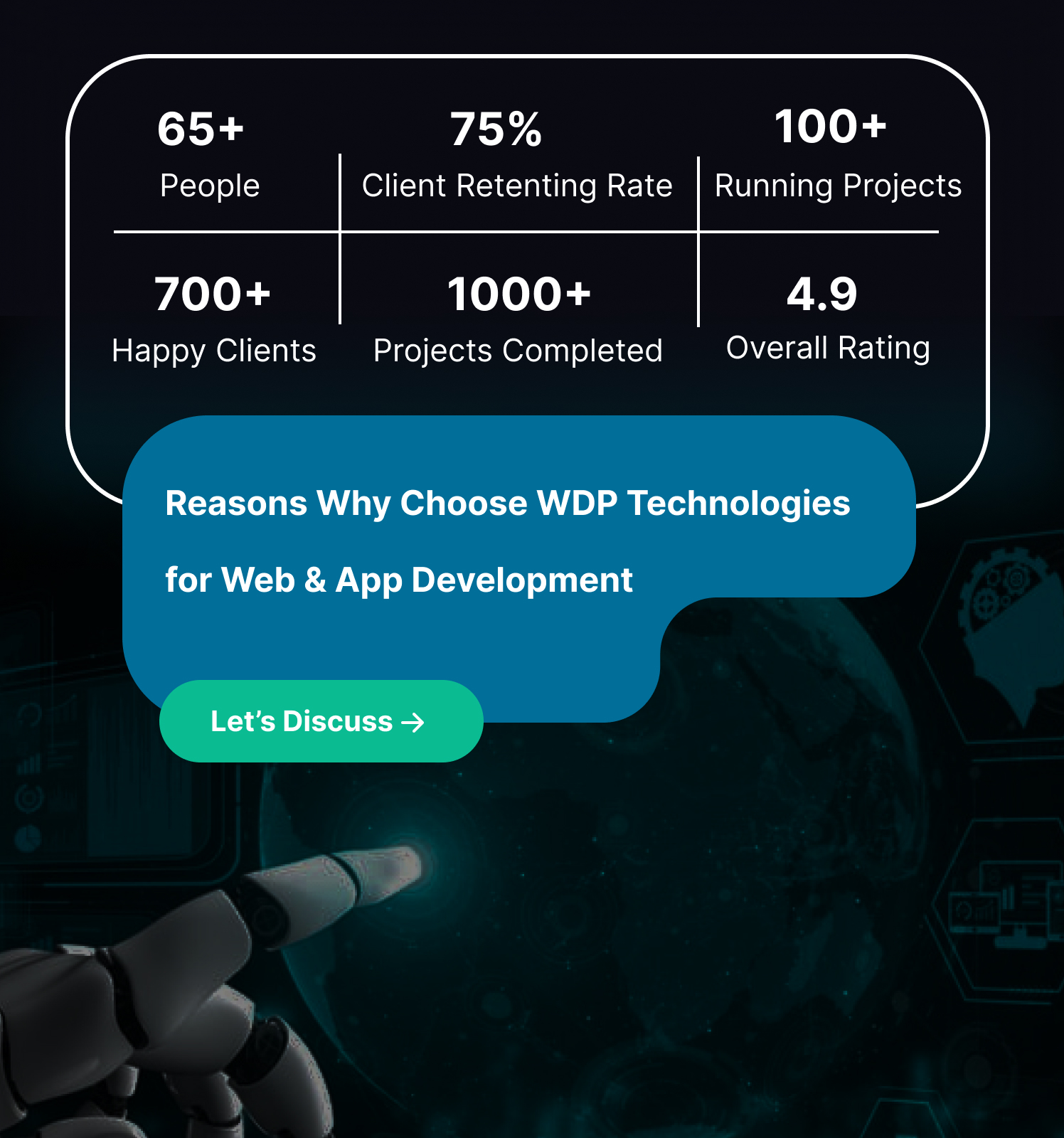NodeJs development is in demand because it allows developers to use JavaScript on the server-side, which can make the development process more efficient and consistent. Additionally, Node.js has a large and active community, which has created a wide range of modules and tools that can be easily integrated into projects, and it is also popular for building real-time applications such as chat apps, online games and IoT application.
It is also popular for building microservices and for building scalable and high-performance applications. Furthermore, the rise of JavaScript as the dominant programming language for web development has led to an increase in the popularity of Node.js as a back-end solution.
What is NodeJS?
Node.js is an open-source, cross-platform JavaScript runtime environment that runs JavaScript code outside of a web browser. It allows developers to use JavaScript on the server-side to build fast, scalable, and high-performance applications. Node.js uses an event-driven, non-blocking I/O model, which makes it well suited for building real-time, data-intensive applications. It also includes an extensive library of modules, known as the Node.js Package Manager (NPM), that can be easily integrated into projects. Node.js has become a popular choice for building web applications, microservices, real-time apps, IoT, and other types of network-dependent applications.
8 Reasons to Choose Nodejs
NodeJS can be used to build a large number of applications. It is a cross-platform and mobile-friendly scripting language consisting of the capacity to manage multiple requests at the same time, it is most popular for fast code execution, making it the most sought-after among developers.
Node.js has a strong community and bug tracking team, having its own modules and tools that are easily available on Node Package Manager (NPM).
Here are some of the benefits of choosing Nodejs
1. Javascript Main Language
JavaScript is a programming language that is mainly used to create interactive and dynamic web pages. It is a client-side programming language, which means that it runs in the user’s web browser, rather than on the server. JavaScript is also used for server-side programming through technologies such as Node.js, which allows developers to run JavaScript on the server.
JavaScript is widely used for creating interactive features such as drop-down menus, image sliders, form validation, and other dynamic elements on websites. It is also widely used for creating web and mobile apps, real-time applications, and browser extensions.
2.It’s Lightning Fast
Yes, one of the benefits of using Node.js is that it is lightning fast. Node.js uses the V8 JavaScript engine developed by Google, which is known for its high performance and speed. The V8 engine compiles JavaScript code into machine code, which makes it faster to execute compared to other JavaScript engines that interpret the code.
Node.js also uses an event-driven, non-blocking I/O model, which makes it well suited for building real-time, data-intensive applications. The non-blocking I/O model allows Node.js to handle multiple requests simultaneously, which can greatly improve the performance of the application.
3. It Is Lightweight
Yes, one of the benefits of using Node.js is that it is lightweight. Node.js uses an event-driven, non-blocking I/O model, which makes it well suited for building real-time, data-intensive applications that require a low memory footprint.
The non-blocking I/O model allows Node.js to handle multiple requests simultaneously without the need for creating new threads for each request. This helps to reduce the overhead and memory usage of the application, making it more lightweight.
4. It Can Be Hosted Anywhere
Yes, one of the benefits of using Node.js is that it can be hosted anywhere. Node.js is a cross-platform technology, which means that it can run on multiple operating systems such as Windows, Linux, and macOS. This makes it easy to deploy and run Node.js applications on different environments, whether it’s on a local machine, a virtual private server (VPS), or a cloud-based platform.
Node.js also has a wide range of hosting options, such as Heroku, AWS Elastic Beanstalk, and Microsoft Azure, that makes it easy to deploy and run Node.js applications in the cloud. This allows developers to focus on building the application, rather than worrying about the underlying infrastructure.
5. It Is Easy to Modify and Maintain
The benefits of using Node.js is that it is easy to modify and maintain. Node.js uses JavaScript, which is a widely-used and well-known programming language, making it easier for developers to understand and modify the code.
Node.js also has a large and active community, which has created a wide range of modules and tools that can be easily integrated into projects. This makes it easy to add new features and functionality to the application without having to write complex code.
6. Scalability
one of the benefits of using Node.js is that it is highly scalable. Node.js is designed to easily handle a large number of simultaneous connections, which makes it perfect for building highly scalable applications.
The non-blocking I/O model of Node.js allows it to handle multiple requests simultaneously without creating new threads for each request. This helps to reduce the overhead and memory usage of the application, making it more efficient and able to handle more requests.
7. Mobile-Friendly, Cross-Platform and Dev-Friendly
Node.js is mobile-friendly, cross-platform and developer-friendly. It can be used to build mobile applications through technologies such as React Native, which allows developers to build mobile apps using JavaScript and React. Also Node.js is a cross-platform technology, which means that it can run on multiple operating systems such as Windows, Linux, and macOS. This makes it easy to deploy and run Node.js applications on different environments, whether it’s on a local machine, a virtual private server (VPS), or a cloud-based platform.
It has the ability to be used on mobile, its cross-platform compatibility, and its developer-friendly nature make it an attractive choice for building and deploying applications.
8. Highly Extensible
One of the benefits of using Node.js is that it is highly extensible. Node.js has a large and active community, which has created a wide range of modules and tools that can be easily integrated into projects. This makes it easy to add new features and functionality to the application without having to write complex code.
The Node Package Manager (NPM) is also a built-in feature of Nodejs, which makes it easy to manage and update the application’s dependencies. NPM has a huge collection of modules and packages that can be easily integrated into projects, this makes it easy to add new functionality to the application.
Conclusion
NodeJS development is in high demand due to its ability to handle high traffic, high scalability, high performance, low memory footprint, and easy to use and maintain. It allows developers to use JavaScript on the server-side, which can make the development process more efficient and consistent. Additionally, Node.js has a large and active community, which has created a wide range of modules and tools that can be easily integrated into projects.
It is also popular for building microservices, real-time apps, IoT and other types of network-dependent applications. Furthermore, the rise of JavaScript as the dominant programming language for web development has led to an increase in the popularity of Node.js as a back-end solution. Overall, the combination of its features and the popularity of JavaScript make Nodejs a highly desirable choice for building web and network applications.
Tired of searching for a trustworthy and reliable NodeJS Web Development Company for your upcoming projects. WDP Technologies is your one-stop destination for all your NodeJS development needs.












